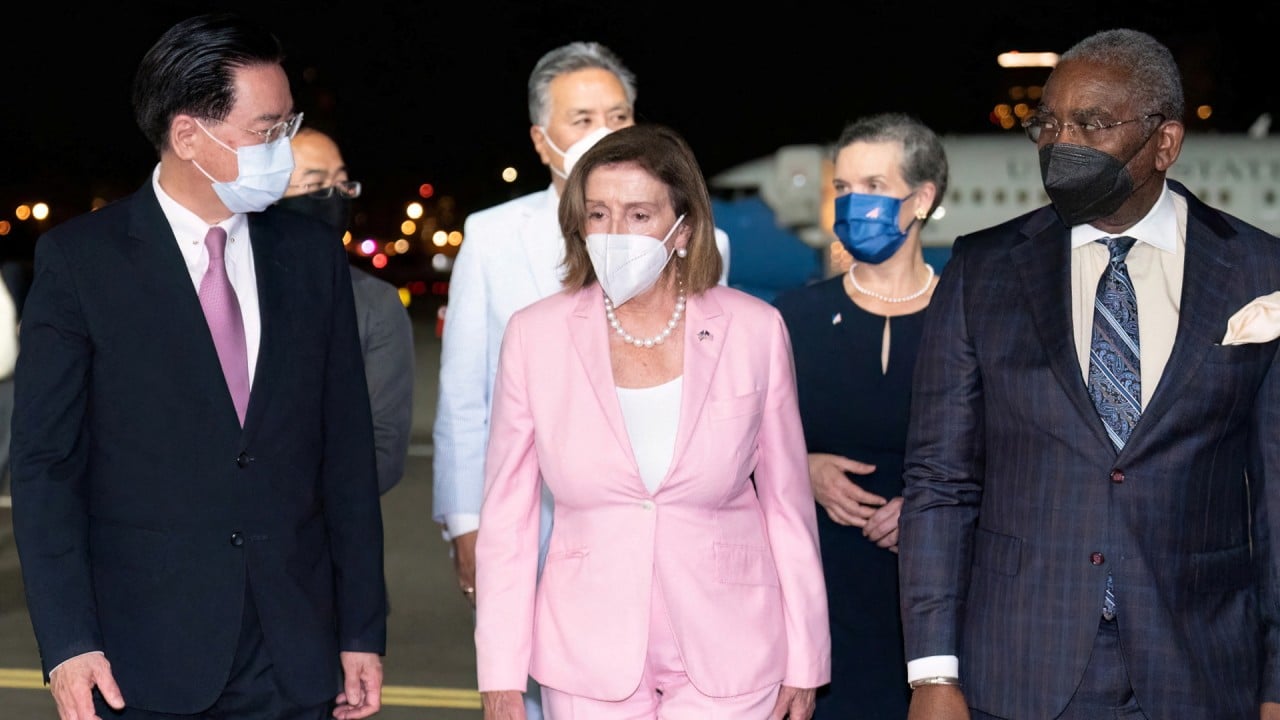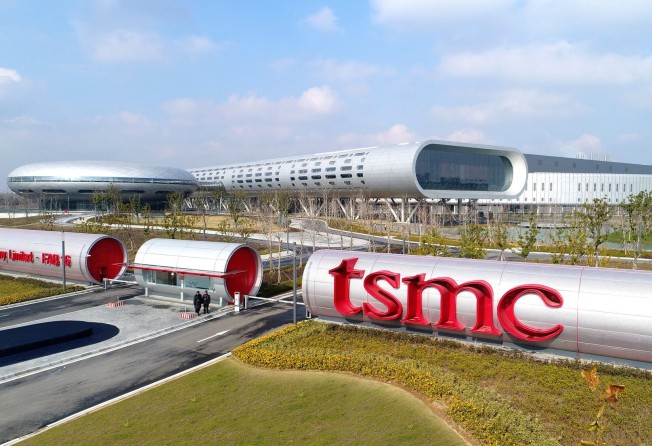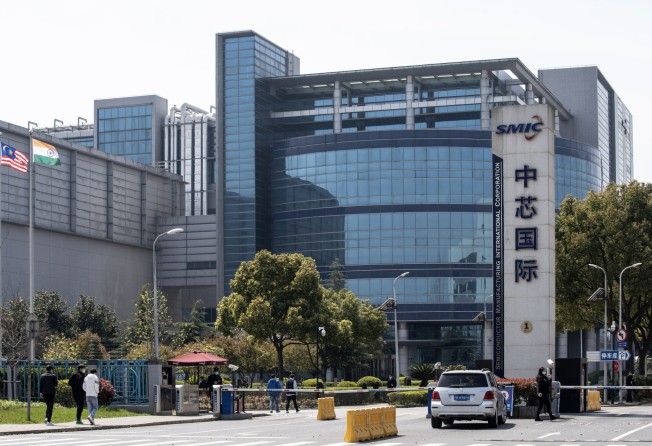
04:57
US House Speaker Nancy Pelosi arrives in Taiwan as Beijing announces live-fire military drills

US House Speaker Nancy Pelosi on Wednesday spoke with the chairman of Taiwan Semiconductor Manufacturing Co (TSMC), the world’s leading contract chip maker, during her visit to the island, to discuss an American legislative proposal, according to a report from Taiwanese news agency CNA.
The discussions between Pelosi and Mark Liu touched on the Chips and Science Act, which was approved by the US House of Representatives and Senate last week, Ker Chein-ming, chief commissioner of the ruling Democratic Progressive Party in Taiwan’s parliament, was quoted as saying.
The new US legislation is widely seen as Washington’s plan to weaken China’s role in global semiconductor supply chains.
Pelosi’s appointment with TSMC executives did not appear on her official itinerary, which was packed with high-profile meetings with Taiwan officials, including President Tsai Ing-wen, legislature deputy speaker Tsai Chi-chang and Vice-President William Lai, among others.
TSMC declined to comment on the meeting, which was also reported by The Washington Post.
Pelosi’s decision to carve out time for a meeting with TSMC during her whirlwind tour shows the strategic importance of Taiwan – which Beijing claims as China’s territory – in providing advanced semiconductors that are crucial to both China and the US.
TSMC is currently building a 5-nanometre semiconductor factory in the US state of Arizona, which is set to be operational in 2024, although it is expected to produce chips that lag behind the ones it will be making in Taiwan at the time.
Pelosi’s high-profile visit comes as Washington has raised its efforts to curb the development of China’s chip industry, which has grown by relying on imported technologies.
In addition to the chips act, which promises US$52 billion in subsidies to semiconductor firms building fabs on American soil, Washington has also been promoting the so-called Chip 4 Alliance – a partnership envisioned by the US to include South Korea, Japan and Taiwan – to exclude China.
US officials are also lobbying Dutch chip equipment giant ASML to stop selling more lithography systems to wafer fabs in China.

While scant details of the discussions between Pelosi and Liu have emerged, reports of the meeting itself have already stirred unease in mainland China.
Xiang Ligang, a Beijing-based analyst who had blamed TSMC for withholding its state-of-the-art technologies from the mainland, said the cross-strait chip industry will focus on competition rather than cooperation, as China is determined to improve its chip production capability.
“Taiwan is only using the resources, talent and markets [on the mainland] for the sake of its own development,” Xiang said, adding that if TSMC sides with the US, it would cast a shadow over the company’s future development on the mainland.
TSMC only builds chips with older technologies in mainland China because Taiwanese law mandates that Taiwanese foundries, such as TSMC, only build products that are at least two generations behind the most advanced technologies available in Taiwan.
China still relies on TSMC’s home base and South Korea’s Samsung Electronics to supply the most advanced chips used in smartphones, as mainland chip plants still lag Taiwanese and South Korean firms by “generations”.
While China’s top chip maker, Semiconductor Manufacturing International Corp, may have achieved the ability to make 7-nm chips, according to Canadian analytics firm TechInsight, the Shanghai-based company has neither confirmed nor denied the report.

The leading-edge chip-making capabilities of TSMC, which Taiwanese people call “the sacred mountain of protection”, have long fanned speculation that Beijing would one day take the island by force.
TSMC’s Liu said in an interview with CNN this week that nobody can control the firm by force because any military operation or “invasion” would “render TSMC factories inoperable”. He also said that TSMC should not be discriminated against simply because it is “close to China”.
TSMC operates a 12-inch foundry in the eastern Chinese city of Nanjing to make chips on mature 16-nm and 28-nm processes. It also has a 8-inch wafer fab in Shanghai.
Pelosi wrapped up her Taiwan tour, which prompted strongly-worded warnings from Beijing, on Wednesday afternoon. She boarded a US Air Force aircraft, accompanied by five US congress members, for the fourth leg of her Asia tour – South Korea.
Before leaving the island, Pelosi tweeted, “Make no mistake: America remains unwavering in our commitment to the people of Taiwan – now & for decades to come.”